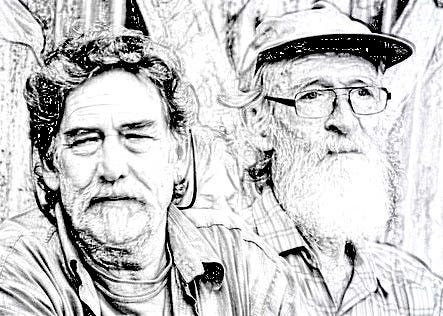“With you I am well pleased”
Jesus looked common, coarse even, but God honored him with remarkable glory
While the constant reminders of Jesus’ simplicity of lifestyle and ego-less stature mark his submission to the Father over and above the world’s assessment, there are moments of glory that Jesus experienced beyond any other human in history.
Image by Gerd Altmann
On coming up out of the water he saw the heavens being torn open
and the Spirit, like a dove, descending upon him.
And a voice came from the heavens,
"You are my beloved Son; with you I am well pleased" (Mk 1:7-11).
The heavens are “torn open” above Jesus as he stands up from his baptism in the river Jordan. A hole or rift is ripped in the sky, revealing a portal into Heaven. Jesus is looking up, knowing the third person of God will descend upon him.
You’ll notice that the voice of God upon Jesus, unlike any other giant in scripture, speaks about and to Jesus in glowing terms. “With you I am well pleased,” God said. “Well pleased” may too cautiously translate the Greek that singularly references Hebrew’s more complex intent — delight in, consent to, and take pleasure in are the correct terms, but the words have an added emotional inflection — deep gratitude. What God hoped for from Jesus, he got. God beams about his Son.
Jesus is not standing in a temple, reining over a hoard of worshippers, or wearing the gowns of a supreme being. He’s wet, maybe scantily clad, and one of many folks in line for a commoner’s baptism. Here, Heaven honors him with startling display. This sparkling show is similar to his later transfiguration on a mountaintop with Peter, James, and John in tow as witnesses for us.
After six days Jesus took with him Peter, James and John the brother of James, and led them up a high mountain by themselves. There he was transfigured before them. His face shone like the sun, and his clothes became as white as the light. Just then there appeared before them Moses and Elijah, talking with Jesus (Matthew 17:1-8).
Jesus dressed like an itinerant Jewish rabbi, poor and undraped, a role and title conferred on him by both Mary Magdelene at the tomb and Peter at the Transfiguration.
Then Peter said to Jesus in reply, “Rabbi, it is good that we are here! Let us make three tents: one for you, one for Moses, and one for Elijah” (Mark 9:5). Mary turned to Jesus after he called her name in his resurrected form: Jesus said to her, “Mary!” She turned and said to him in Hebrew, “Rabbouni,”* which means Teacher. (John 20:16)
A UK professor said that Jesus was “likely physically unassuming, with average looks and height, and features that — as a first-century Jew in Judea — would have been most similar to his ethnic group’s closest 21st-century parallel: contemporary Iraqi Jews.” She cites archaeological evidence — skeletons and clothing from the period.
Further images of Jesus come from Roman scribes in the first few centuries. They disparaged Jesus for his common, low-bred appearance, substantiating the coarse framing of an unlikely Messiah.
In his death, his visage as a beaten man, severely wounded, dehydrated, and hung miserably with criminals completes the story from his birth in swaddling lamb’s cloth to his stripped and ruined body on the cross.
The glory we imagine for God, painted in many popular artworks of Jesus over the last thousand years, is not awarded to Jesus until his Ascension, another glorious event where the entire heavenly host shows up.
How similar are we to Jesus? Do we realize the coming glory for our transformation into Heaven? Our heavenly, immortal presence will hinge on none of the glitz and glamor we may be offered or find in this life.
We will travel through the opening Jesus saw made for him, a portal between our realm and heaven (Lord willing). Our closets will be left behind. Nothing of our appearance here will matter. Our spirits will shine from the light of God.







